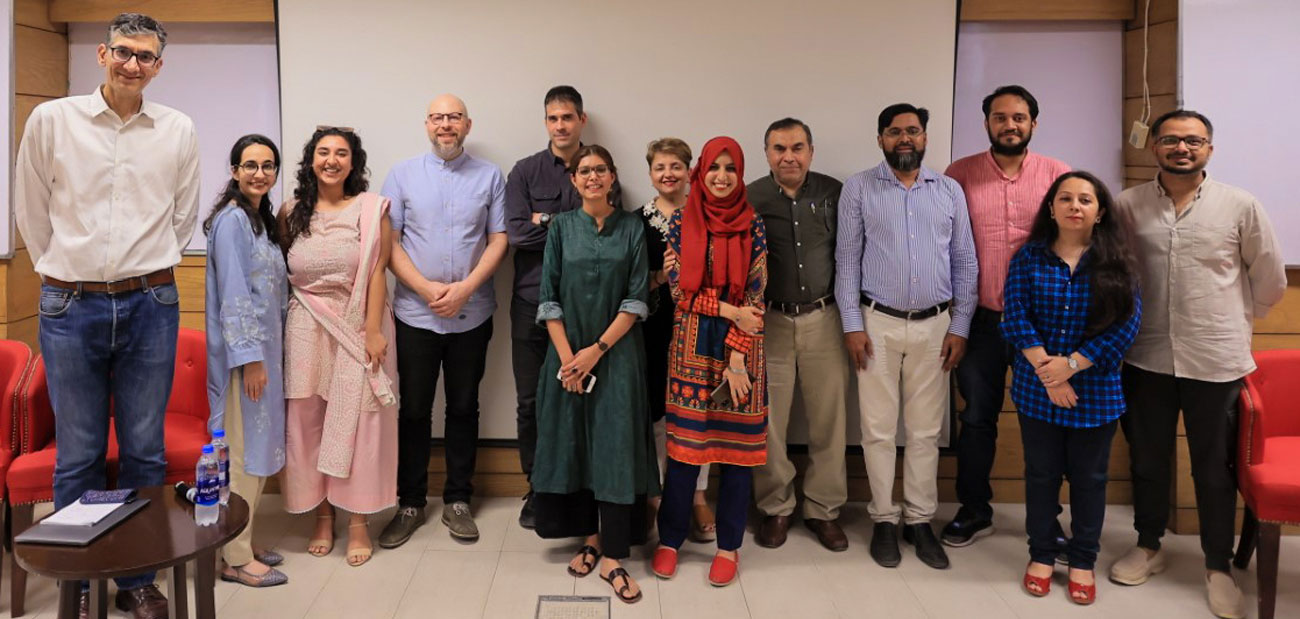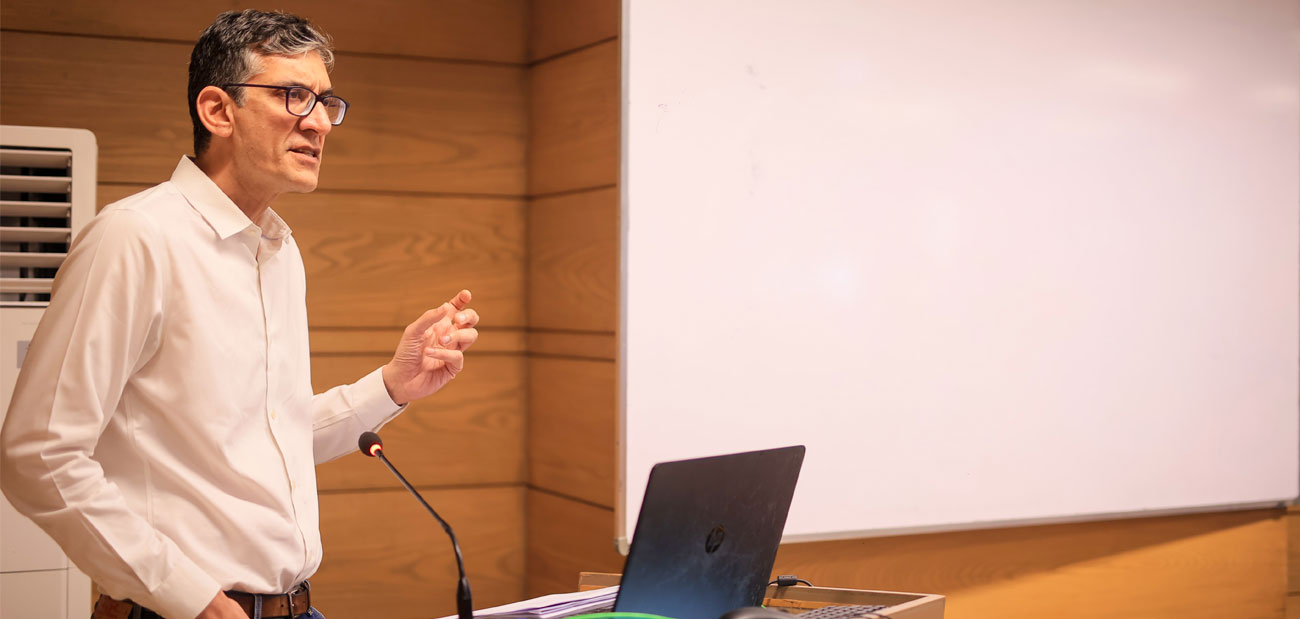KUL and Urban Institute, University of Sheffield hosted a joint seminar titled 'Why are we still talking about Silk Roads?'
February 24, 2023: Karachi Urban Lab (KUL), based at the School of Economics and Social Sciences (SESS), IBA Karachi, in collaboration with the Urban Institute, University of Sheffield hosted a seminar titled 'Why are we still talking about Silk Roads? Capital, Connectivity, and Infrastructure between China and Pakistan'.
The seminar was part of the European Research Council (ERC)-funded Global CORRIDOR project, led by Dr. Jonathan Silver, Senior Research Fellow, Urban Institute, University of Sheffield; which investigates the role of new infrastructure corridors in shaping the urbanisation process and inequality in East Africa, Pakistan, and the Mediterranean. It was chaired by Dr. Fatima Tassadiq, Post-Doctoral Research Associate, Urban Institute, University of Sheffield.
The seminar featured a key discussion by Dr. Hasan Karrar, Associate Professor, Mushtaq Ahmed Gurmani School of Humanities and Social Sciences, Lahore University of Management Sciences (LUMS). Dr. Karrar began his address by critiquing the historical relevance of the 'Silk Road' phenomenon and opined that it was an imperialist construct that served to imagine a China-Asia connection through the frame of regional trade linkages.
Dr. Karrar examined how the 'Silk Road' concept continues to influence economic & infrastructural cooperation between China and Pakistan today. He detailed three dimensions of this cooperation: capital flows, cultural connectivity, and infrastructural development.
Discussing, China building new infrastructure projects in Pakistan, Dr. Karrar questioned whether these projects were truly novel concepts or pre-existing plans that had hit a slump owing to Pakistan's financing woes. He also questioned whether these new projects, such as the CPEC corridor, were holistic projects as advertised, or simply partial, patchworked infrastructures.
Commenting on the cultural connectivity between China and Pakistan, Dr. Nausheen Anwar, Professor City & Regional Planning and Director, KUL, pointed out that it is modulated by latter's dependence on Chinese capital. She quoted the presence of a visceral anti-Chinese sentiment from her work in Thar to ask, how might affective expressions of connectivity change when shifting focus from high politics to the local scale?
Speaking about the 'fast-tracking' of CPEC-backed energy sector projects through the Public-Private Partnership (PPP) financing model, Dr. Anwar encouraged further inquiry into Chinese financing models in patchwork-like conditions.


